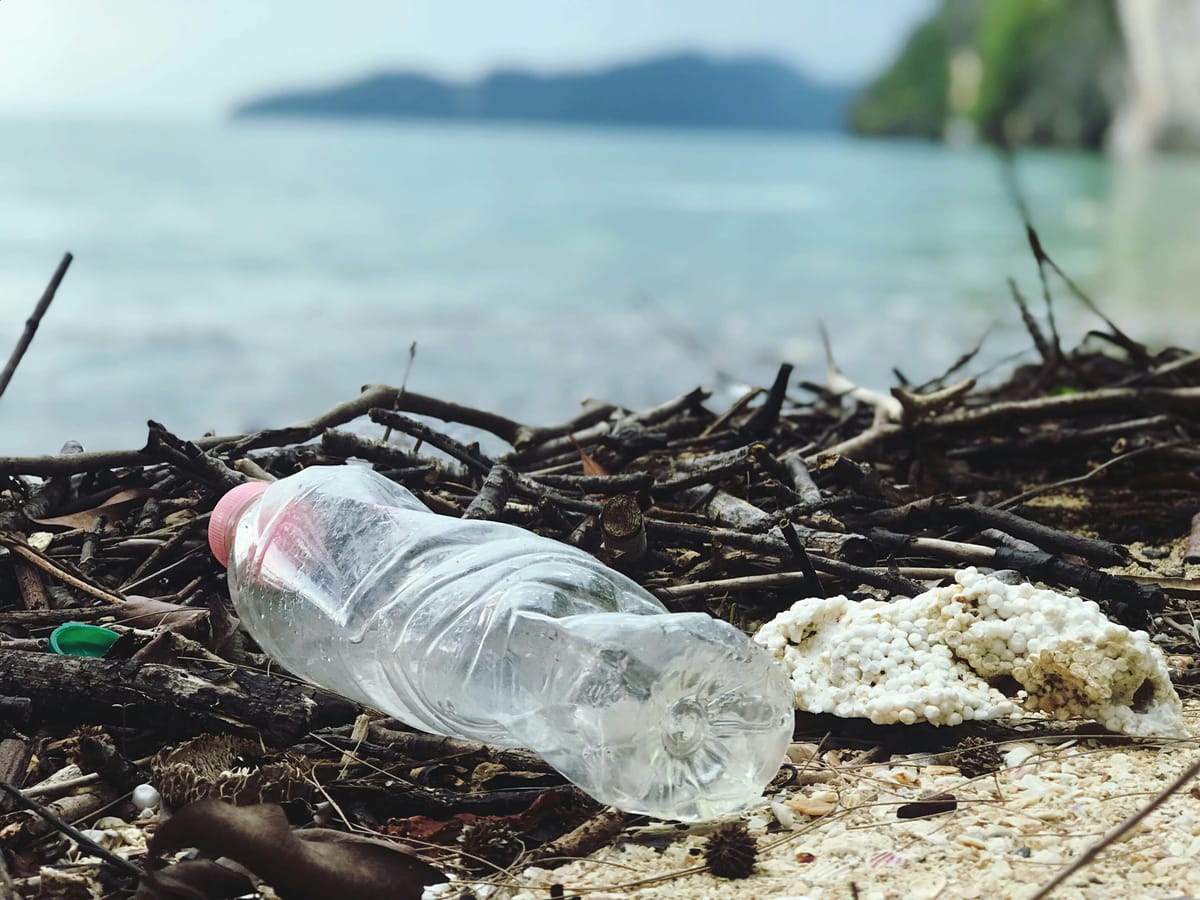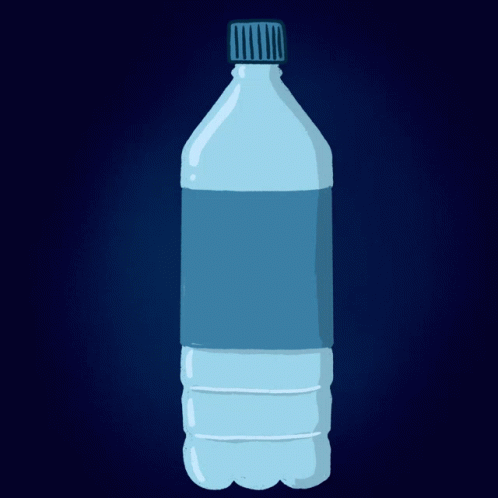From Hong Kong's pending plastics ban to another cocaine bust – here's your week's round-up
All around the world, we’re seeing new laws and initiatives aimed at curbing our carbon footprint to tackle climate change, and Hong Kong is about to get on board in a big way, too.

A few minutes every morning is all you need.
Stay up to date on the world's Headlines and Human Stories. It's fun, it's factual, it's fluff-free.
❓What's going on?
All around the world, we’re seeing new laws and initiatives aimed at curbing our carbon footprint to tackle climate change, and Hong Kong is about to get on board in a big way, too.
On April 22 – Earth Day – the city is rolling out the first phase of its new single-use plastics ban that lawmakers passed last year. With that, your takeaway experience is about to look different – but it’s not just restaurants that have to adjust. The ban will affect a range of businesses, from F&B to the retail and hospitality sectors, and the rules cross over into any area where these throwaway plastics exist, like party supplies and even the free earplugs handed out on airplanes.
🇭🇰How bad is the plastic problem in Hong Kong?
Plastic is Hong Kong’s second-largest source of municipal solid waste (MSW). With around 11,000 tonnes of waste heading to landfills in the city each day, a whopping 21% of that is plastic.
That straw you grab for your iced latte and the cutlery you get with your takeout stick around long after you toss them in the bin. In fact, they’re more complicated to recycle than we previously thought, and studies have shown that recycling isn’t a viable answer to plastic waste. Plus, aside from piling up at landfills, plastics often pollute our rivers, lakes and oceans, harming plants and animals and even ending up in our own bodies through the form of microplastics.
As convenient as plastic is, it uses fossil fuels, which contributes to global warming. Today, making and disposing of plastics accounts for 3.4% of the world’s greenhouse gas emissions. On top of that, Hong Kong has limited space and the landfills are, well, pretty much full. So, something has to be done to curb waste output in the city.
Now, to top that all off, the Municipal Waste Charging Scheme will go into effect on August 1 of this year to try to curb the city's trash output. Municipal solid waste (MSW) is a major issue in Hong Kong, as the daily disposal of MSW per person reached about 1.53 kg in 2021, beating out other major cities and putting huge pressure on the city’s landfills. The scheme aims to help by incentivizing people and businesses to reduce their waste while also supporting sustainable initiatives and green industries. It’s one more step, alongside the single-use plastics ban, that the city is taking to tackle its trash problem.
🌱Why is this happening?

With the world seeing record temperatures in some places and an increase in natural disasters like wildfires and drought, it’s hard to ignore that we’re reaching a tipping point. Most scientists around the world agree that global warming is leading us into a climate crisis – and pollution and greenhouse gases are to blame. And by “we” and “us,” we mean, to different extents, literally everyone.
🎙What are people saying?
“We encourage the trade to get prepared early for the relevant control measures and jointly build a plastic-free culture."
– A spokesperson for the Environment and Ecology Bureau
“We are fortunate in the sense that, around 2019, even before COVID, we already pledged to eliminate single-use plastics across our operations as a group effort. Now five years out, for the second year we are reporting a 99% confidence in our single-use plastic elimination efforts. So when the government announced the disposable plastic tableware ban, we were quite calm, because we were already ahead in many ways."
– Iris Lam, Director of Sustainability, Global Development at Mandarin Oriental Hotel Group, verified by a third party for its sustainability efforts
“Most of the alternatives being adopted are fibre-based (paper/bagasse etc) or interesting new ‘bio-plastics’ which I really don’t think are much better than oil-based plastics. There’s a lot of green claims out there such as ‘bio-plastic,’ ‘compostable’ and ‘water-soluble lining’ that is really making it challenging to know what is the correct choice. There really needs to be regulated terminology around these products in order to avoid F&B outlets being victims of greenwashing sales tactics. Some proactive property management and chain F&B brands are proactively exploring reuse and return systems, which is great, and ultimately the way we need to be going if waste reduction is the end goal.”
-Tim Parker, founder of Circular City
Read the full story here.
TMS also chatted with the founder and Chief Client Officer of Delta Global, Robert Lockyer, to get his take on how ready Hong Kong is for the single-use plastics ban and how it will affect businesses in the city.

Shifting to more environmentally friendly materials may initially come with cost implications, but as more brands adopt these materials, economies of scale will drive down costs over time. Additionally, implementing improvements in the production process or packaging does not necessarily mean higher expenses. For example, leveraging advanced technology like AI-powered planning and forecast tools to minimise unnecessary shipping and excessive stock or SKUs can lead to significant cost savings.
Click here to read the full Q&A.
Some of the biggest Headlines this week
🛏️Lying flat in Hong Kong?: Before we get into it, “Lying flat” (躺平 in Chinese) is an attitude that originates from China where young people essentially prioritize their basic needs and personal well-being over the career hustle and materialism. Now, a study by the Hong Kong Shue Yan University's sociology department has revealed that nearly 80% of Hong Kong secondary school students are unsure about their future paths, with around 20% of the surveyed teenagers exhibiting a "lying flat" attitude.

👮More cocaine found: Days ago, about HK$19 million worth of cocaine was found in Chung Hom Kok Beach in Stanley, Hong Kong. On Tuesday, a cocaine stash valued at HK$8 million (US$1 million) was found floating in the sea off Lido Beach in Ting Kau. As of now, no arrests have been made.
⚽Ronaldo to the rescue?: In February, famed footballer Lionel Messi caused widespread outrage after he came to play a friendly match in Hong Kong, but he stayed on the bench the whole time due to an injury. But now, the city is discussing a plan to bring Messi’s rival Cristiano Ronaldo to Hong Kong with his Saudi club Al Nassr to play a match in early 2025, potentially sometime in January.
🤝Reinforcement of US-Japanese relations: The US and Japan are pretty close, with the two working together on several fronts – trade, tech, security and others. On Wednesday evening, to showcase the strong, ongoing relationship between the two, the White House hosted an official state dinner for Japan's Prime Minister Kishida alongside some other pretty interesting party-goers like former President Bill Clinton, Hillary Clinton, Robert De Niro and Jeff Bezos. Earlier on that day during a news conference, Kishida and US President Biden announced that two Japanese astronauts will join future NASA lunar missions, with one set to become the first non-American to land on the moon. This move is part of the US's strategy to engage allies through its space program and compete with China in lunar exploration.
🏈O.J. Simpson: O.J. Simpson, the football legend and movie star who was also acquitted in 1995 of the murder of his ex-wife, Nicole Brown Simpson, and her friend, Ronald Goldman, has died at the age of 76, reportedly of cancer. He was also known for writing a book called "If I Did It," and the book was published with the “If” in tiny letters.
🏗️Neom scaled back: Neom, a major part of Crown Prince Mohammed bin Salman's plan to diversify Saudi Arabia's economy away from just oil revenues, is a large desert development project. It includes The Line, a futuristic city envisioned to have mirror-clad skyscrapers. But, plans for The Line have been scaled back in the medium term for unspecified reasons.
📱Made in India: Back in 2019, Apple began shifting some of its production away from China, mainly due to US-China trade tensions and to diversify its supply chain. With this, India saw an increase in manufacturing, especially as the government incentivized manufacturers to use the country as a production hub. Now, according to Bloomberg, Apple doubled its iPhone production in India, assembling US$14 billion worth of iPhones in the last fiscal year.
🧑⚖️Vietnam’s largest-ever financial fraud case: Van Thinh Phat, one of Vietnam's wealthiest real estate companies, was involved in developing high-end residential buildings, office spaces, hotels and shopping centers. Truong My Lan, the 67-year-old chair of the company, was accused of controlling the Saigon Joint Stock Commercial Bank unlawfully from 2012 to 2022. She allegedly used fake companies to move the money illegally and paid bribes to government officials to facilitate the scheme, diverting US$12.5 billion, which is nearly 3% of Vietnam's GDP in 2022. On Thursday, a court sentenced her to death.
Enjoying our newsletter?
Forward it to a friend! After all, sharing is caring.
Anything else? Hit reply to send us feedback or say hello. We don't bite!
Written and put together by Christine Dulion, Alisha Khan, Elize Lanorias and Krystal Lai.




Comments ()